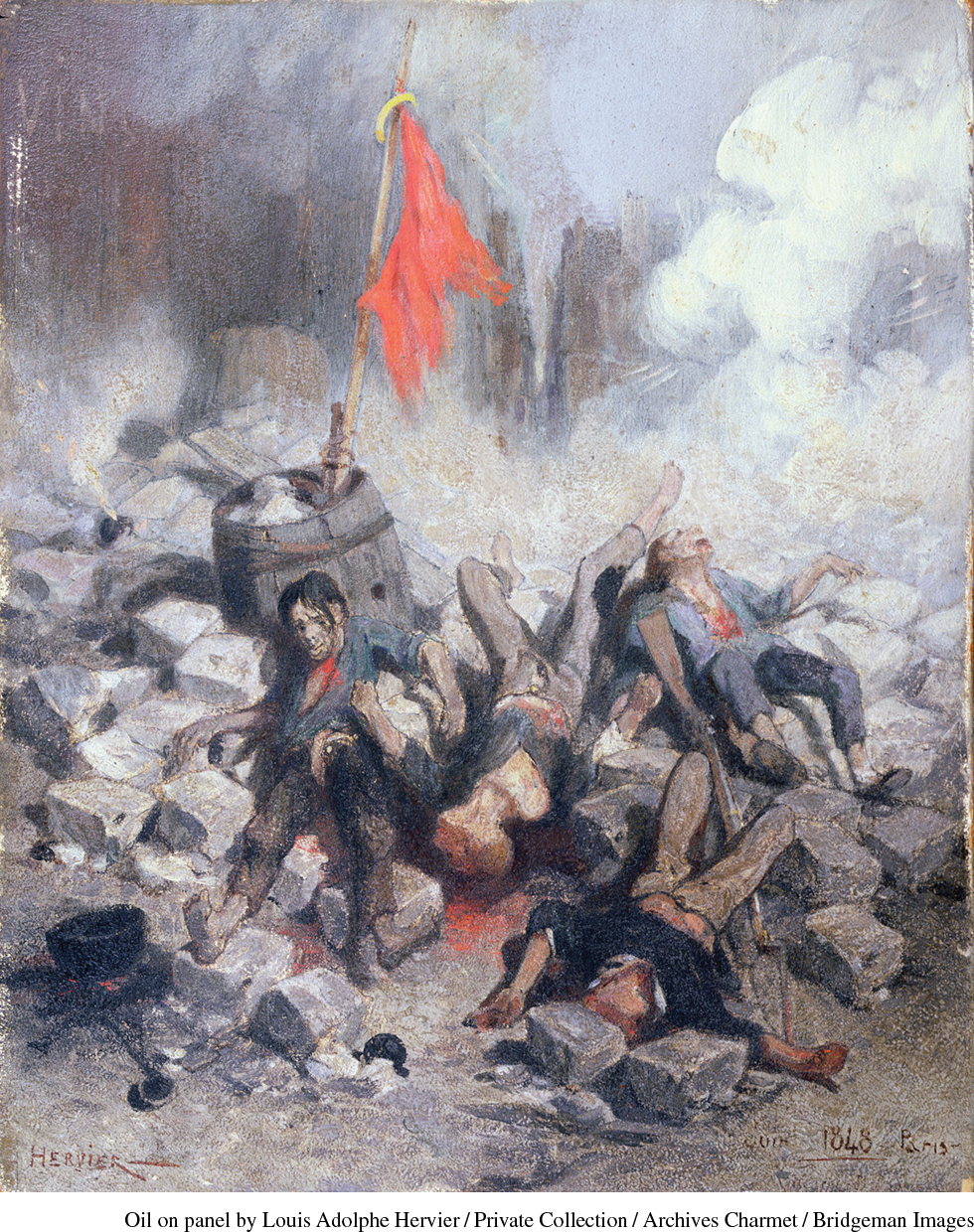Another French Revolution
Another French Revolution
The specter of hunger amplified the voices criticizing established rulers. A Parisian demonstration in favor of reform turned violent on February 23, 1848, when panicky soldiers opened fire on the crowd, killing forty or fifty demonstrators. The next day, faced with fifteen hundred barricades and a furious populace, King Louis-Philippe abdicated and fled to England. A hastily formed provisional government declared France a republic once again.
The new French republican government issued liberal reforms—an end to the death penalty for political crimes, the abolition of slavery in the colonies, and freedom of the press—and agreed to introduce universal adult male suffrage despite misgivings about political participation by peasants and unemployed workers. The government allowed Paris officials to organize a system of “national workshops” to provide the unemployed with construction work. To meet a mounting deficit, the provisional government then levied a 45 percent surtax on property taxes, alienating peasants and landowners.
While peasants grumbled, scores of newspapers and political clubs inspired grassroots democratic fervor in Paris and other cities. Meeting in concert halls, theaters, and government auditoriums, the clubs became a regular evening attraction for the citizenry. Women also formed clubs, published women’s newspapers, and demanded representation in national politics.
This street-corner activism alarmed middle-class liberals and conservatives. Tension between the government and the workers in the national workshops rose. Faced with rising radicalism in Paris and other big cities, the voters elected a largely conservative National Assembly in April 1848; most of the deputies chosen were middle-class professionals or landowners who favored either a restoration of the monarchy or a moderate republic. The Assembly immediately appointed a five-man executive committee to run the government and pointedly excluded known supporters of workers’ rights. Suspicious of all demands for rapid change, the deputies dismissed a petition to restore divorce and voted down woman suffrage by 899 to 1. When the numbers enrolled in the national workshops in Paris rocketed from a predicted 10,000 to 110,000, the government ordered the workshops closed to new workers, and on June 21 it directed that those already enrolled move to the provinces or join the army.

The workers exploded in anger. In the June Days, as the following week came to be called, the government forces crushed the workers: more than 10,000 people, most of them workers, were killed or injured; 12,000 were arrested; and 4,000 eventually were convicted and deported to Algeria. (See “Document 21.2: Alexis de Tocqueville Describes the June Days in Paris.”)
After the National Assembly adopted a new constitution calling for a presidential election in which all adult men could vote, the electorate chose Louis-Napoleon Bonaparte (1808–1873), nephew of the dead emperor. Bonaparte got more than 5.5 million votes out of some 7.4 million cast. His election spelled the end of the Second Republic, just as his uncle had dismantled the first one established in 1792. In 1852, on the forty-eighth anniversary of Napoleon I’s coronation as emperor, Louis-Napoleon declared himself Emperor Napoleon III, thus inaugurating the Second Empire. (Napoleon I’s son died and never became Napoleon II, but Napoleon III wanted to create a sense of legitimacy and so used the Roman numeral III.) Although the revolution of 1848 never had a period of terror like that in 1793–1794, it nonetheless ended in similar fashion, with an authoritarian government that tried to play monarchists and republicans off against each other.